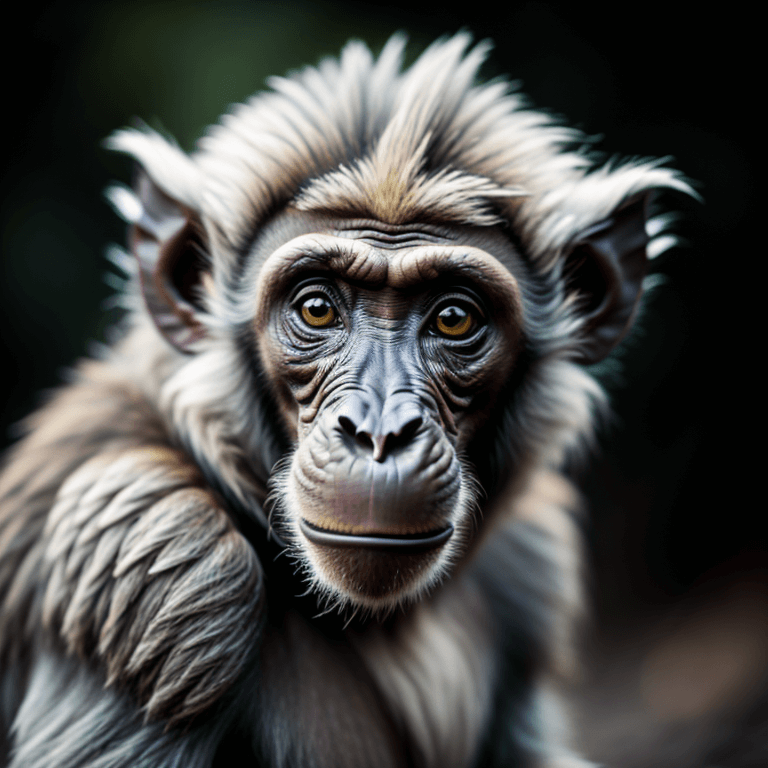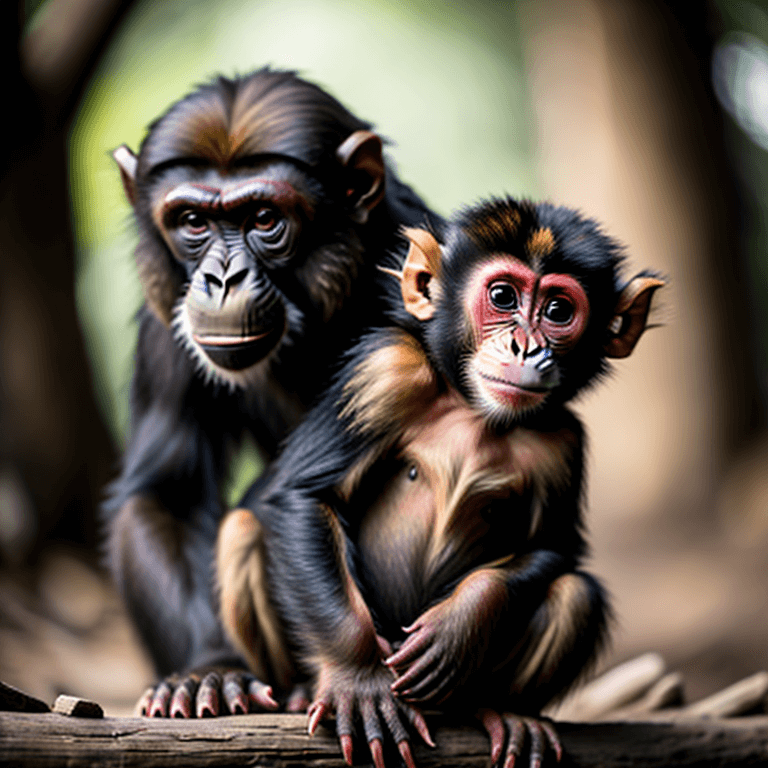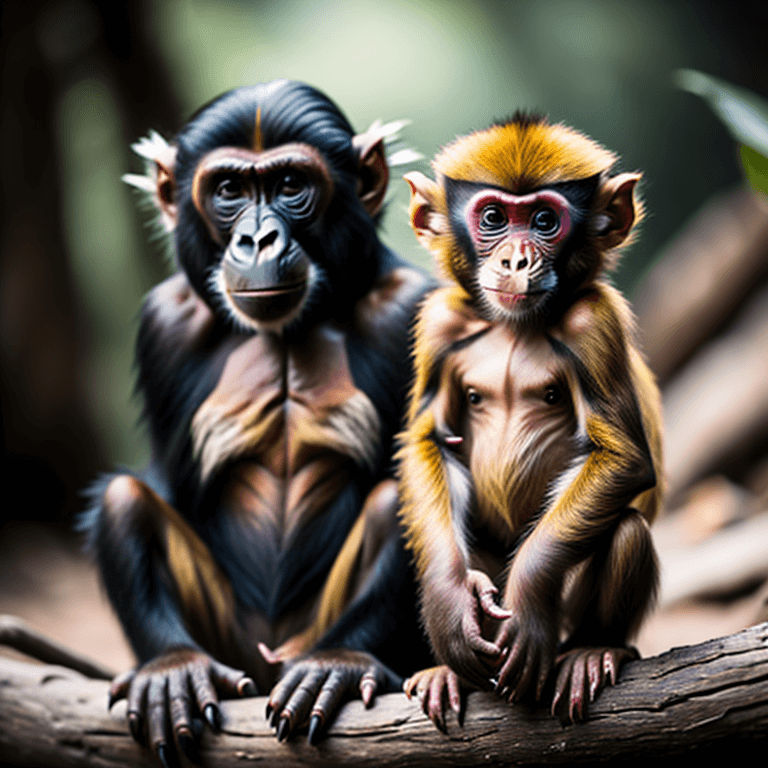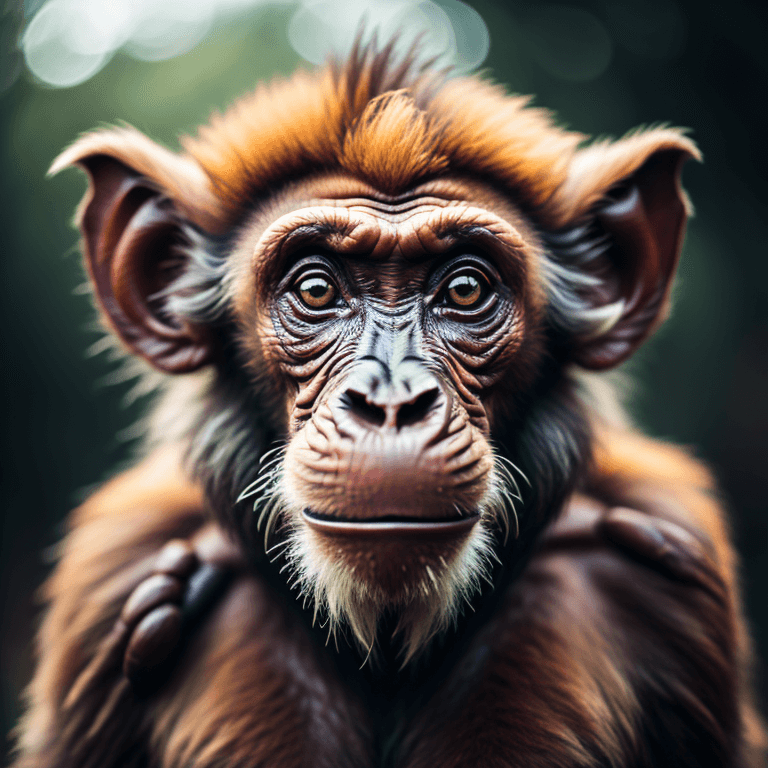How long do monkeys live?
We will explore the average lifespan of different types of monkeys.
The average lifespan of a monkey is about 20 years in the wild and 30 years in captivity.

Here is an overview of the average monkey lifespan based on research & studies:
- On average, monkeys live 15-20 years in the wild.
- Smaller monkey species, like marmosets, tend to live on the shorter end around 15 years. Larger primate species can live 25-30 years or more.
- In captivity, the average monkey’s lifespan is 25-30 years with proper care and diet. Captive lifespans are often extended 5-10 years over wild counterparts.
- The oldest documented monkey was a Japanese macaque named Emmeline, who lived to be 43 years old in captivity.
Some specific monkey lifespan ranges:
- Squirrel monkeys – 15-20 years wild, up to 30 years captive.
- Capuchin monkeys – 15-25 years wild, 30-40 years captive.
- Rhesus monkeys – 18-22 years wild, 30+ years captive.
- Spider monkeys – 20-25 years wild, 35 years captive.
- Chimpanzees – 30-40 years wild, 50-60 years captive.
Most monkeys live around 15-25 years on average, with smaller primates on the shorter end and great apes on the longer end.
Proper care and diet in captivity can add 5-20 years over a monkey’s natural lifespan. The maximum lifespan for monkeys is 40-60 years.
Some monkey species have a lifespan of up to 50 years, while others may only live for 5 or 6 years.
The primary factors that influence a monkey’s lifespan include its diet, habitat, and lifestyle.
How long do monkeys live?

While the lifespan of monkeys varies depending on the species, most monkeys live between 20 and 30 years.
For example, rhesus macaques typically have a lifespan of around 25 years, while Japanese macaques have been known to live up to 35 years.
However, there are some records of individual monkeys living much longer than average.
In one case, a rhesus macaque named Miss Baker was brought into space as part of a research mission and lived to be 27 years old.
- In captivity, monkeys often live even longer than they do in the wild.
- This is due to the fact that they are protected from predators and diseases and have access to regular food and veterinary care.
- As a result, captive monkeys can often reach the age of 40 or even older.
How can you help your monkey friend live a long and healthy life?

Monkeys are intelligent and social creatures, and they can make great pets.
However, they require a lot of care and attention in order to stay healthy and happy.
Here are a few tips on how to help your monkey friend live a long and healthy life:
- First, monkeys need a large enclosure that gives them plenty of space to climb, play, and explore. The enclosure should also be safe, with no sharp edges or potential escape routes.
- Second, monkeys should be fed a healthy diet of fruits, vegetables, and proteins. Avoid giving them sugary snacks or processed foods, as these can lead to health problems.
- Third, monkeys need regular exercise, so provide them with toys and climbing apparatus to keep them active. Finally, monkeys are social creatures, so it’s important to provide them with companionship.
If you can’t commit to being with your monkey friend all the time, consider adopting another monkey or finding a trusted friend or family member who can help care for your pet.
By following these tips, you monkeys live long and healthy lives.
What factors influence a monkey’s lifespan

The lifespan of a monkey is determined by a variety of factors, including diet, habitat, and health.
A monkey’s diet plays a significant role in its lifespan, as a nutritious diet helps to ensure a long and healthy life.
Monkeys that live in the wild typically have a shorter lifespan than those in captivity, as they are more exposed to predators and diseases.
Finally, the overall health of a monkey can impact its lifespan; monkeys that are free from disease and injury tend to live longer than those that are not.
In general, the lifespan of a monkey is largely determined by its environment and diet.
However, the individual health of a monkey can also play a role in its longevity.
With proper care and attention, monkeys can enjoy long and healthy lives.
Which monkey species have the longest lifespan
One of the longest-lived monkey species is the brown capuchin.
- These monkeys are native to South America and can live for over 50 years in the wild.
- They are relatively small monkeys, with adult males typically weighing around 10 pounds.
- Brown capuchins are social creatures that live in groups of up to 30 individuals.
- They are also very intelligent monkeys and have been known to use tools to help them find food.
- Another long-lived monkey species is the Yangtze River dolphin.
These dolphins, which are actually more closely related to whales than monkeys, can live for over 60 years.
Which monkey species have the shortest lifespan
Among all the monkey species, the shortest-lived in the common marmoset, with a mean life expectancy of only 3.2 years in the wild and 18.7 in captivity.
Next is the pygmy marmoset, with a wild lifespan of around 6 years and 23 in captivity.
The shortest-lived Old World monkey is the black talapoin, with a lifespan of about 9 years in the wild and 20 in captivity.
Finally, the shortest-lived New World monkey is the golden-handed tamarin, with an average lifespan of 12 years in both the wild and captivity.
While all these monkeys have relatively short lifespans compared to other animals, they actually live longer than most mammals of their size, thanks to their diet and lifestyle.
Why is it important to know how long monkeys live
There are many reasons why it is important to know how long monkeys live.
For one, this information can help researchers to better understand the health and aging process in primates.
Additionally, knowing the life expectancy of monkeys can provide insight into the evolution of longevity in different species.
Finally, this information can be used to improve captive breeding programs and ensure that captive populations remain healthy and genetically diverse.
In sum, there are many good reasons why it is important to know how long monkeys live.
By gathering this information, we can gain a better understanding of both primate health and evolution.
Ultimately, the length of a monkey’s life will depend on a variety of factors, including diet, habitat, and genetics.
Article Sources
Jacks of Science sources the most authoritative, trustworthy, and highly recognized institutions for our article research. Learn more about our Editorial Teams process and diligence in verifying the accuracy of every article we publish.